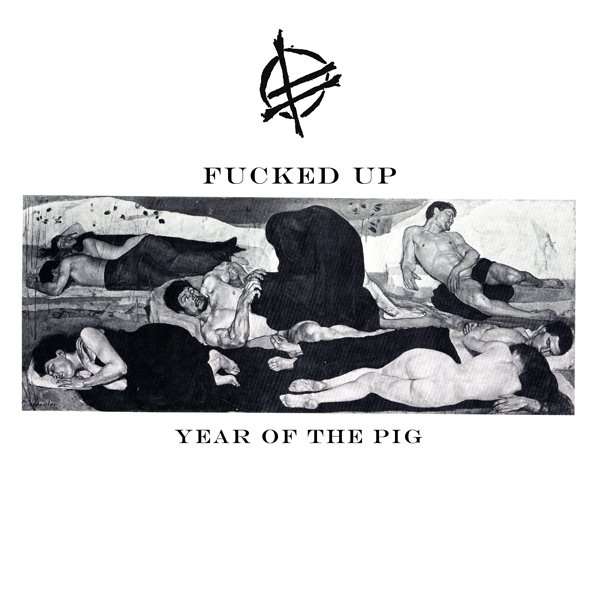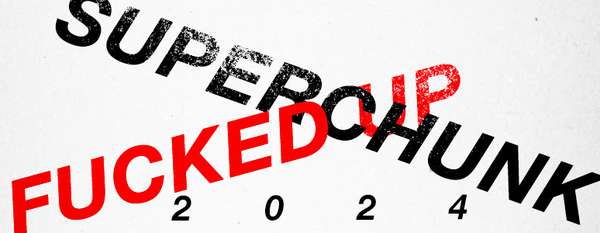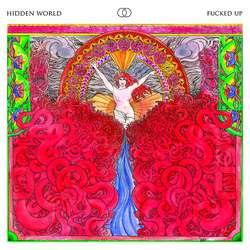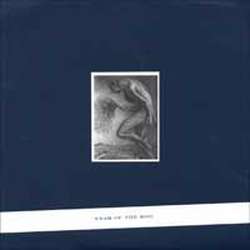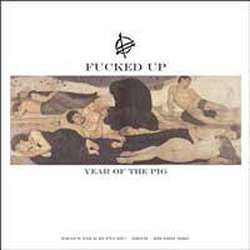Fucked Up are on intimate terms with ambiguity. It's a rare virtue, since as a rule rock bands tend to seek the comfort of ham-fisted moralism or an apathy either hard-partying or self-pitying. But like Sylvia Plath circa Ariel or the earliest punk bands, Fucked Up stamp their works with an intimidating and sometimes uncomfortable symbolic resonance, leaving it to the listener to sort through the barbed signifiers. For some, it's a revelation; for others, it's condemned as pretension or irresponsibility, since it doesn'tas rock music often has since the late 1960sprovide an answering chorus for the listener's own tenuous, rickety belief systems: too much "Belsen Was a Gas," not enough "Nazi Punks Fuck Off." It's a bit like playing with a loaded gun, but that's also part of the fun: like Texas Hold 'Em, this kind of aesthetic praxis yields more rewards when played with high stakes. And like many of the best players, Fucked Up have never shied away from the high roller's table.
On Year of the Pig, Fucked Up drag Hidden World's Cinerama hardcore out of the sunshine and down into the mud: punk rock's standard issue armament - what Chuck Eddy once called "three chords chopping down skyscrapers" - gets kneaded and deformed like human flesh under pre-modern disciplinary norms, bent and hammered into eerie new shapes under royal fiat. The band attempted this transfiguration on Year of the Dog, but their mojo is much stronger here. The chewy center of "Year of the Pig" comes from a sepulchral melody as infectious as a nasty cut slathered in dirt, with a lambent guest vocal by Jennifer Castle floating over a subtle organ undertow. 10,000 Marbles recently informed me that the band plans on adding an organist full-time, and if this song is any indication, it's an inspired idea. (The female vocal/organ combo - not to mention all the darkness - reminds me just a tiny bit of one of my favorite bands, the lost-in-the-shuffle and perpetually overlooked Love Life.) But Fucked Up also never lose track of the physicality handed down from Black Flag: even their most mystical flights of fancy pack the force of a riot guard's truncheon or an anarchist brickbat.
"Black Hats" continues in a more concise and bruising mode, with the band's grisly roar gilded by Mustard Gas' bass fanfare. Her deft role in the band continues to go somewhat unsung; she and the military-precise Mr. Jo form a rhythm section not to be underestimated. At a glance, the lack of groove variation on the b-side made me suspect that it might be blank and that the purported song might actually be a ruse, despite the fact that I'd heard them play it on the night I bought the record. Thankfully I was wrong, and "Black Hats" instead just dispenses with the title track's nuance without becoming leaden. Both songs bite, but "Year of the Pig" really claws at your consciousness: it chases the sublime as doggedly as Fucked Up ever has, proving that even the jaw-dropping expanse of Hidden World could be a beginning, rather than a finale.
In simple terms, Year of the Pig is one of the best and boldest records Fucked Up has released yet, and a fitting mutation after their magisterial full-length opus. The closest corollary in the Fucked Up back pages is probably Looking for Gold, the record that separated the band's black-and-white dark ages from the rainbow romanticism of their present. Looking for Gold also provided a mission statement of sorts, stuffed with arcane iconography and closer in spirit to Grant Morrison's hypersigilic comic eschaton The Invisibles than to most hardcore records (an influence acknowledged by the band themselves, who have never been coy about their inspirations).
But Looking for Gold and Hidden World studded their paths with signposts to help the listener contextualize the band's sonic alchemylike an epigraph from Mircea Eliade, the brilliant and controversial theorist of comparative religion who was persistently haunted by his association with Romania's infamous, death-worshipping fascist paramilitary, the Iron Guard. Year of the Pig makes no such concessions, courting equivocacy as hungrily as anything the band has released, with vague but deeply ominous lyrics: "Pigs at the trough disappear / One final meal before kissing the spear / Skins on the hook left to dry / Just use the flesh pay no mind to the hide." (Imagine the different tone these lyrics would take in the hands of a Raid or a Vegan Reich; if only more hardliners had such poetic souls.) Both songs run thick with images of death, slaughter, and a nearly apocalyptic eclipse of life: Year of the Pig is an extremely hostile record, worked with a rich ugliness worthy of a Sam Peckinpah movieespecially given the political discomfort his "ballet of death" often provoked in critics.
Year of the Pig also furthers a comparison that's been niggling at the back of my mind for some time now like a brain slug. It may chafe hardcore partisansand quite possibly the band themselvesbut more and more Fucked Up reminds me of Sonic Youth at their best: both bands cut a thoughtful, complex profile, culling influence from a whole universe of (often non-musical) sources without ever sacrificing songwriting or immediacy on the conceptual altar. (Remember that I said Sonic Youth at their best.) Sonic Youth poured their NYC bohemian awareness into strange, spectral guitar sculptures on Daydream Nation or Sister, just as Fucked Up continues to channel their esoteric outlook into bracing, bone-crunching punk.
Another member of the Scene Point Blank staff has confessed that he likes Fucked Up's approach to "Year of the Pig" more than anything else that they've done. Hopefully he's just one of many converts lured in by the band's unflagging sonic expansion. It boggles my mind how anybodyat least, anybody who knows about themcan ignore this band right now, but I guess people even sat outside smoking cigarettes while Black Flag played. But now's a better time than ever to get on the Fucked Up bandwagon, since if the past is any indication, they're changing forms again. Rip them down, hold me up.
See also
The Germs, Caspar David Friedrich, The Religious Studies Section @ Your Local Library
